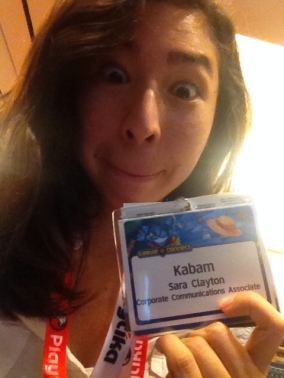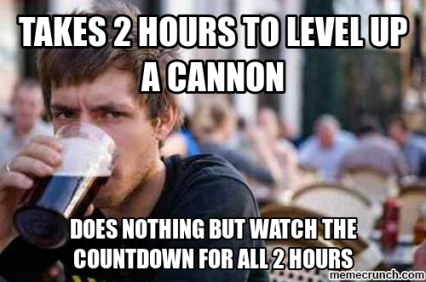This year, I was lucky enough to attend Casual Connect USA, which was just a couple of blocks from where I intern.
I was stoked to go.
Really stoked.

I attended a number of sessions, but out of all of them, my favorite was definitely Free-2-Play Games: A Year in Review, featuring Dave Rohrl (Founder & CEO, GameHound Inc.), Juan Gril (Studio Manager, Joju Games) and Steve Meretzky (VP of Creative, GSN). I found out during their presentation that this is a talk they’ve been doing for a couple of years now, but every year is completely different.
Here’s what they discussed, in fabulous TL;DR form:
1. Simulation games are getting more and more complex. Unlike Hay Day, Farmville is pretty simple. Just plant your crops, grow them and build your farm, with the option of spending the money you earn to decorate your farm. Hay Day, on the other hand, involves this and more like cooking, boat orders, quests, etc. The loops for these types of games are getting more intricate.
- Though these games have incredible staying power, if you want to try and successfully develop and publish your own simulation game, you’re going to need a lot of resources, since the production costs are very high.
2. Puzzle games have been very successful as casual games, but there are some obvious differences between indie puzzle games and commercial puzzle games. Traction is one of these differences. Just think: Voro, a fairly elaborate and addicting game, just doesn’t have the DAUs as sillier puzzles like Pet Rescue Saga or Farm Heroes Saga. Mass market themes tend to do better, and being able to achieve victory in different ways (instead of just one way that can get tedious if too difficult).
3. No one is copying Supercell’s Clash of Clans successfully. Even though there’s a website dedicated to featuring Clash of Clans clones, none of these games have been able to crack the code as gracefully. The only exception is Boom Beach which is developed by… *drumroll*… Supercell! Therefore, the opportunity to make another Clash of Clans is still huge… we’re waiting!
4. There’s not much to say about social casino except for the fact that it’s making BANK. These are the leaders in each subcategory of social casino…
- Slots Only
- Slotomania, Jackpot Party Casino
- Bingo Only
- Bingo Blitz, Bingo Bash
- Poker Only
- Zynga Poker
- Multiple Genres
- Doubledown Casino, Big Fish Casino, GSN Casino
Unfortunately, these are heavyweights in the social casino genre, which means that it is hard for newcomers to try and compete. If you want to try, it’s best to draw inspiration from land-based casino as well as standard F2P gaming techniques (i.e. unlocking new machines, social elements, time-limited content, etc.).
5. Micro Games like Flappy Bird and Piano Tiles are stupidly popular. Because they attract such large audiences, ads are usually the main monetization scheme. Though these games, which can sometimes be developed by as few as one person, might be seen as threats to some gaming companies. But companies like Gameloft (with Ninja Jump) are embracing this formula by publishing their own micro games for the sake of cross-promoting their other games.
6. Hearthstone is one of the few games out there that is doing F2P as fairly as possible. Sure, you’ll have an advantage if you buy cards, but players who don’t pay aren’t at a complete loss. There are two different modes to play in Hearthstone – one which favors payers and the other which favors players. It’s something you don’t see too often in F2P. The game also does away with checklists, something that many, many F2P games use. They don’t leave a lot to the imagination, so Hearthstone replaces it with more time-based objectives, like rewarding users for being in the game for an hour or playing x number of games.
Now that you’ve reached the end of this post, here’s an even shorter TL;DR:
Simulation games like Hay Day are becoming more complex and need a lot of resources to keep players happy. Puzzle games are more likely to be successful if you reward players little by little. The potential for more Clash of Clans games is huge — so go start developing! Social casino makes buckets of cash, but is very competitive. Micro games are being used more frequently to natively cross-promote games. Hearthstone is doing F2P right.
Hope you learned a thing or two more about F2P. Happy (casual) gaming!
